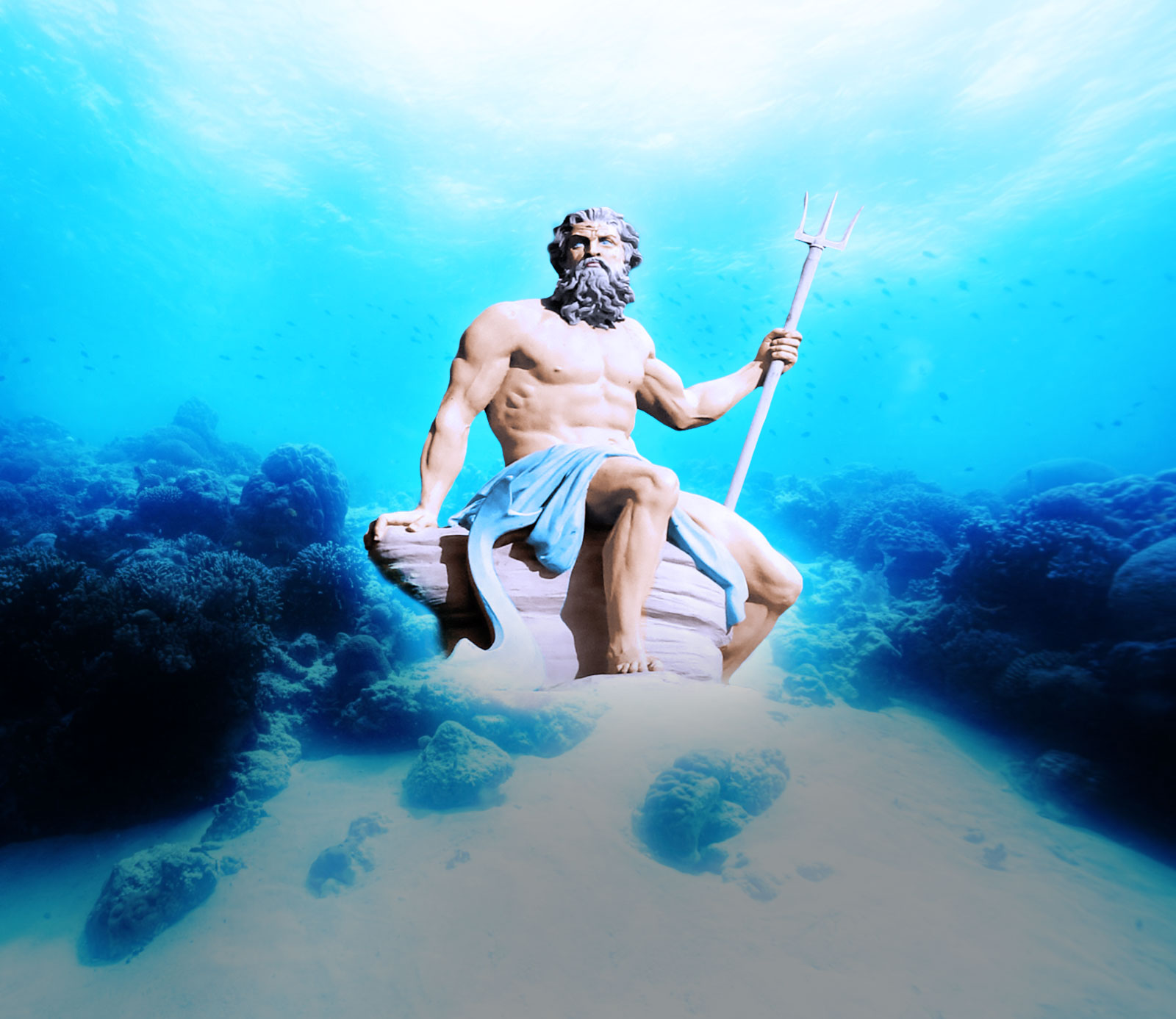

This piece became today’s island Nisyros. During the Gigantomachy, the god used the trident to break off a piece of the island Kos, under which he subsequently entombed the Giant Polybotes. It is said that Poseidon struck a rock with his trident to create the very first horse, Skyphios. The trident is his most recognizable emblem, though his son, Triton, carries one as well. Oftentimes, he is depicted riding a four-horse chariot and wielding a trident over the waves. Homer says that his shriek was as loud as one of ten thousand men combined. In fact, in portrayals, he looks very much like Zeus, a distinguished, bearded man with a dense curly hair and piercing eyes. Poseidon is nowadays known exclusively as a sea god, but in ancient times, he may have been the god of the earth and fertility or even the supreme god of the sky. Various authors have tried to translate it as either “husband of the earth” or “lord of the waters.” Plato says that it means “knower of many things,” but this is much less likely. It seems strange that a sea god should be connected to horses, but Poseidon has several myths establishing him as a god of horses.Poseidon’s name is very old, and its meaning is lost to us. Theseus jumped into the sea and Amphitrite gave him her tiara to prove his connection to her husband. Minos prayed to his father Zeus for a sign and received thunder and lightning. So, each one had to prove to the other that he was the son of a god.

In fact, in one version of Theseus’ journey to Crete, when Theseus arrived in Crete, Minos questioned his paternity, and Theseus questioned Minos’. Unlike Hera, Amphitrite does not seem to have cared much that her husband often looked for love outside of marriage. Poseidon seduced Tyro (the mother of Aeson and the grandmother of the hero, Jason) in the form of a river and became the father of Pelias and Neleus, who, in turn, became the father of Nestor (who figures in both the Iliad and the Odyssey). The cyclops Polyphemus (who figures in the Odyssey) was his son by the sea nymph, Thoösa, and he fathered the hunter Orion with Euryale, the daughter of Minos. Poseidon was married to Amphitrite, a daughter of Oceanus and Tethys, and they had a few children, most notably Triton, but like his brother Zeus, Poseidon had a tendency to pursue extramarital affairs. Īthena and Poseidon competing for patronage of Athens on an amphora in the Cabinet des Médailles in Paris The most famous of Poseidon’s contests for power is over Athens, where he competed unsuccessfully with Athena. Athena and Poseidon argued over possession of Troezen and Zeus ruled that they share possession of the city. Hera and Poseidon fought passionately over Argos, and when the three river gods who were given the task of judging the dispute found in favor of Hera, Poseidon flooded the city and dried up the rivers in anger. He and Helius (god of the sun) both wanted Corinth and could not agree, so they took their dispute to Briareüs, who divided the area between the two, giving the citadel to Helius and the isthmus to Poseidon.

Poseidon vied with several of his fellow gods for several areas, and Poseidon did not often fare well in these contests. The gods often competed with each other to win patronage over areas in Greece. He once convinced Hera and Athena to join him in a rebellion against Zeus, whom they managed to imprison in chains until Thetis brought Briareüs, the chief of the Hundred-Handers, to release him (Homer, Iliad, 1.396-405). Poseidon was allotted domain over the seas, but he always remained immensely jealous of Zeus’ position of King of the Gods. After the Olympians overthrew their Titan parents, the three Olympian brothers, Zeus, Hades, and Poseidon, drew lots to divvy up the realms. Most stories relate that he was swallowed by his father like all his older siblings, and was rescued by Zeus along with his other siblings. God of the sea, salt and fresh water springs, earthquakes, and horses \)Įpithets: Enosichthon (Earth-Shaker), Hippios (the Horse God)


 0 kommentar(er)
0 kommentar(er)
